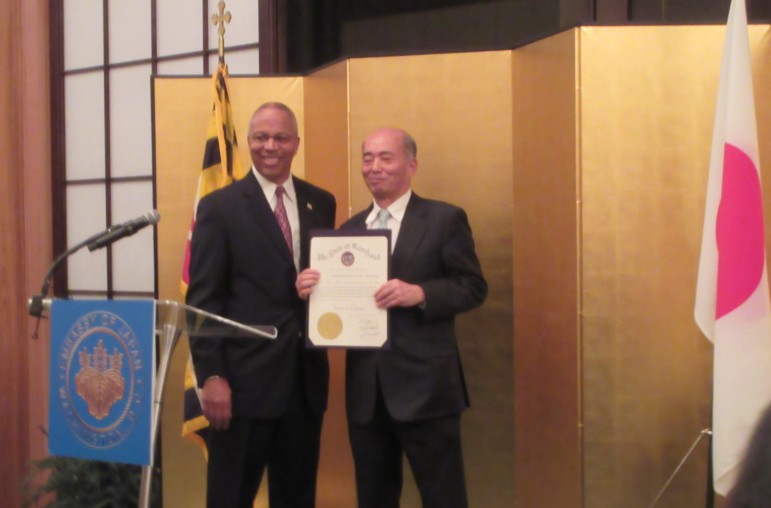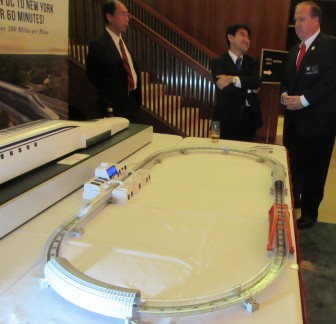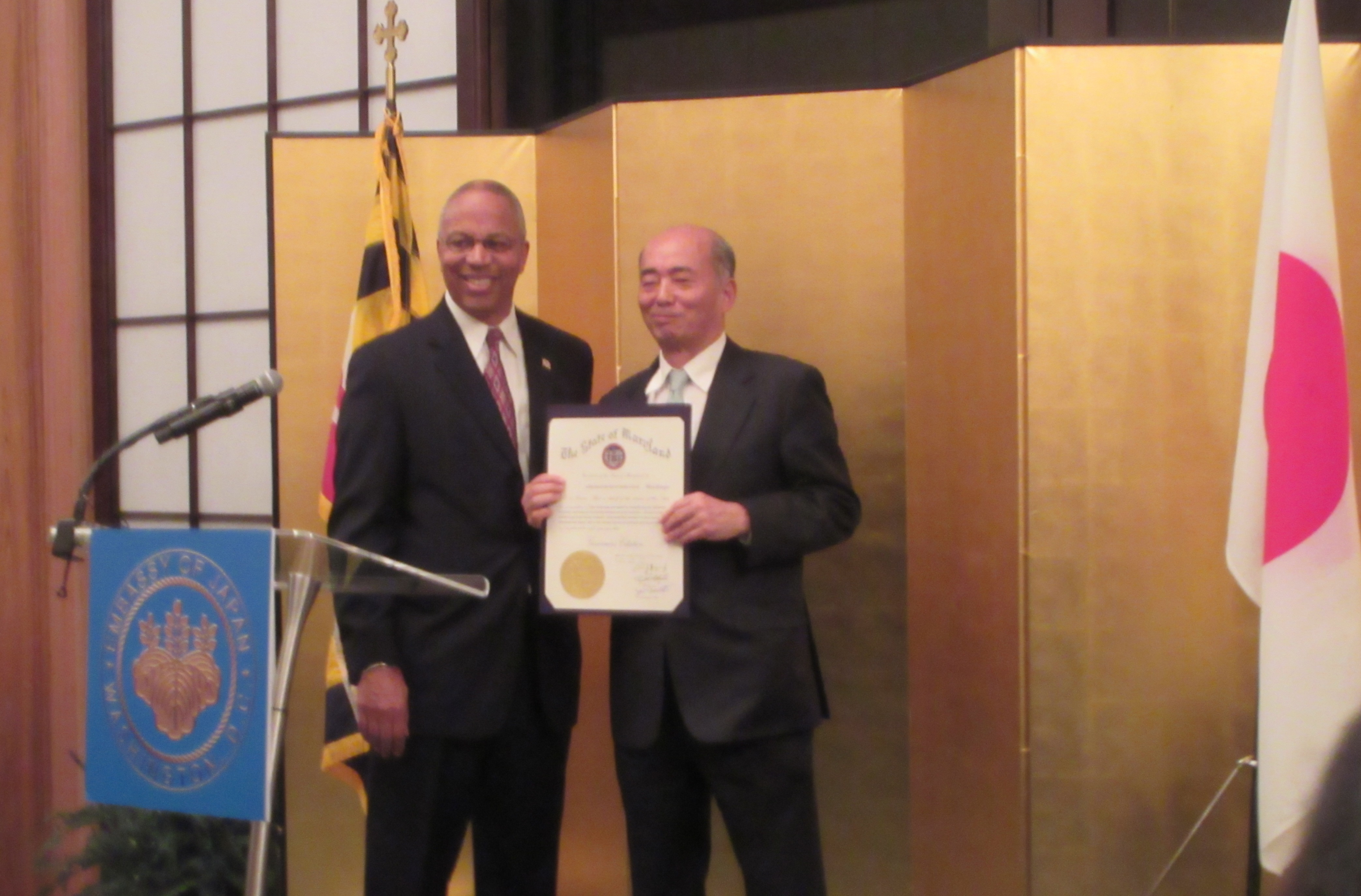By Len Lazarick

Lt. Gov. Boyd Rutherford presents a governor’s citation to Japanese Ambassador Kenichiro Sasae at the envoy’s residence Monday night.
Japanese Ambassador Kenichiro Sasae hosted scores of Maryland senators and delegates at his official residence in Washington Monday night to celebrate increasing business ties with Maryland.
“More than 6,000 Japanese already live in Maryland,” Sasae told a crowd of several hundred that included many of those residents. “Roughly 600 Japanese companies operate there, providing about 10,000 jobs for the citizens of Maryland.”

Del. Bob Long of Dundalk, right, discusses the maglev train project with Japanese representatives next to a model of the high-speed train at the home of Japan’s ambassador.
Sasae mentioned the huge new Cove Point liquid natural gas export terminal being built in Calvert County with Japanese investment and the work on the maglev high-speed train project from Washington to Baltimore, which just received a U.S. Department of Transportation grant of $27 million.
“In January, Japan and Maryland will recognize each other drivers’ licenses so Marylanders don’t have to take the Japanese exam and Japanese don’t have to take the Maryland exam,” Sasae announced. It’s the first such recognition for any of the 50 states.
Motorists in Japan drive on the left, and the steering wheel is on the right.
“It’s quite an adventure that you’re recognizing our drivers’ license,” Sen. Richard Madaleno in a short speech on behalf of the Maryland Senate. “I hope that works out.”
United Foods in Belcamp
Sasae also announced that Shimadzu Scientific Instruments, which has been operating in Columbia for decades, is opening a new innovation center in December, and in March, United Foods International will be opening a new factory for Japanese food products in Belcamp.
“I don’t know where Belcamp is,” Sasae admitted.
But Del. Mary Ann Lisanti shouted out that she did — it’s in her Harford County district.
Lisanti said that the United Foods will be occupying a building that had housed a detailing operation for Mercedes-Benz cars. It had relocated nearer the Port of Baltimore where the cars are off-loaded several years ago.
UFI executives said the plant will initially employ about 40 people.
Gov. Larry Hogan had visited Japan in June, and Lt. Gov. Boyd Rutherford said Ambassador Sasae had been “instrumental in making the visit a success.”
The public reception rooms of the ambassador’s residence are more like the lobby and ballrooms of a five-star hotel, with two-story windows that look out to a Japanese formal garden.
The food was traditional Japanese fare — sushi, tempura and hand-made buckwheat noodles.
“To make you feel at home, I wanted to serve blue crabs tonight,” Sasae said. “But I still haven’t figured out how to eat them. Or what part you are supposed to eat. But we are glad you came anyway.”




Recent Comments